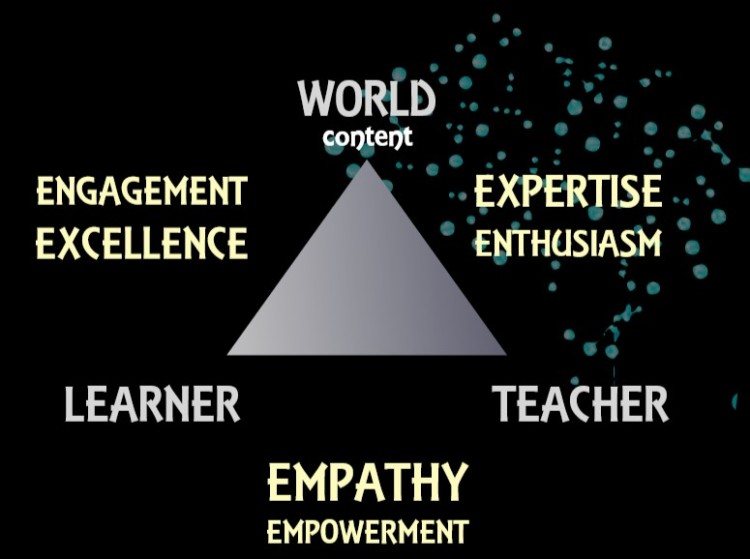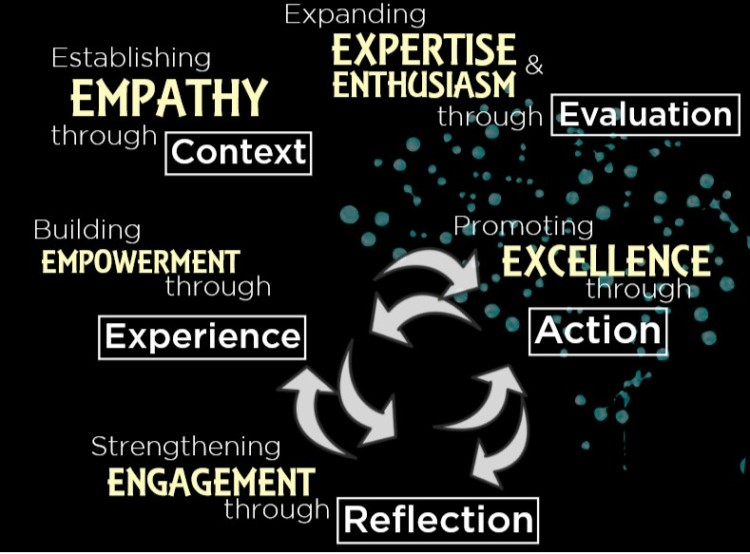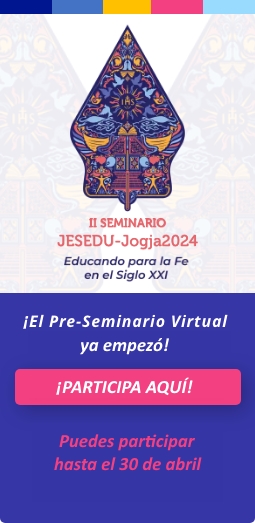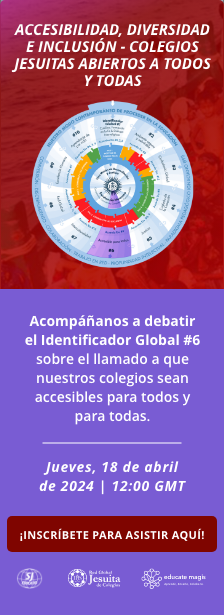Last month, we the Educate Magis team, were fortunate to have Fr. Johnny Go, SJ, ICAJE Member for Asia Pacific, here in the office in Galway with us for a few days. Of the many insightful conversations, meetings and interactions we had with Fr. Johnny, the IPP workshop he facilitated stood out as a highlight for all of us.
Fr. Johnny Go had recently published a book called ‘»Learning by Refraction: A Practitioner’s Guide to 21st Century Ignatian Pedagogy” which offers a fresh take on Ignatian Pedagogy, curating what’s most helpful from the latest education research combined with what has been tried and tested. The workshop Johnny facilitated for us was based on this book (and we highly recommend reading it if you have not already done so!)
Johnny highlighted to us the importance of context as a fundamental aspect of both teaching and learning. This may seem obvious to most, but it is something which emerged again and again throughout the workshop. Johnny explained to us that he and the co-author of the book (Rita Atienza) had used the term ‘Refraction’ as it refers to the medium changing the light, i.e. the learner changing the content they receive and making it their own, an important part of learning. It also sounds like a combination of Reflection and Action, two fundamental elements of the IPP. Johnny explained to us that all learning experiences must encourage action, which is born out of reflection.
Before beginning the workshop, we were of course all familiar with the IPP, but the session with Johnny really helped to make it come to life and show us how relevant it is to 21st century learning, as well as being a fundamental aspect of Jesuit Education. Johnny spoke to us about the importance of designing learning experiences, about the importance of the teacher preparing a hypothesis or insight before beginning a lesson or unit, keeping the learners’ context in mind.
As we all know the IPP
attempts to motivate students by involving them as critical active participants in the teaching – learning process. It aims for more personal learning by bringing student and teacher experiences closer together. It invites integration of learning experiences in the classroom with those of home, work, peer culture, etc.” (Ignatian Pedagogy, 1993, #75) I.e.
The focus is on a learner-centred approach rather than a teacher-centred approach, something which is also a key aspect of 21st century teaching and learning. Johnny discussed with us the importance of relationships in learning, again this may seem super obvious, but he referred not only to the teacher/learner relationship and instead outlined 3 distinct relationships which are crucial to learning:
- Between the learner and teacher
- Between the teacher and world
- Between the learner and world
World here refers to whatever content/subject matter is being investigated. This relationship in the IPP has its roots in the Spiritual Exercises where Ignatius of Loyola highlights a similar three-way relationship between the retreat director, the retreatant and God. He advises retreat directors not to take center stage but to encourage the relationship between the retreatant and God. Similarly, in order to help facilitate a fruitful learning experience the teacher should be mindful of these relationships and how they can influence learning. A useful way to strengthen these relationships Johnny explained is using the 6 Es of Refractive learning, Engagement and Excellence, Expertise and Enthusiasm, Empathy and Empowerment.

We then looked at this in relation to the IPP and how this ties in with the elements of the IPP we are all familiar with.

We also considered the shift in a teacher’s role from the more traditional ‘expert/inspector’ to more of a ‘coach/facilitator’ so that the IPP might look something like this:

At the end of the Workshop we used what we had learnt to design a learning experience, beginning with an insight and keeping the context of the learners in mind throughout.
The design of Refractive Learning needs to be contextualized according to the learner’s prior knowledge, current mood, interests and learning style for it to become relevant to the students. Second, learning becomes meaningful and applicable only if we make sure that students are given the opportunity and the guidance to engage in Reflection and to use what they have learned beyond the classroom. Finally, the Experience we design for them should be as holistic as possible, where they are encouraged to become active and empowered learners”.
Using the IPP in this way seems like a wonderful way to meet students where they are at in today’s world and facilitate a process of deep and meaningful learning. Doesn’t it? How about sharing your own designs of learning experiences using the IPP with us and the community? How can we, as a global community, help each other designing learning experiences using the IPP?
Inicia sesión o Hazte miembro
para crear y ver comentarios

